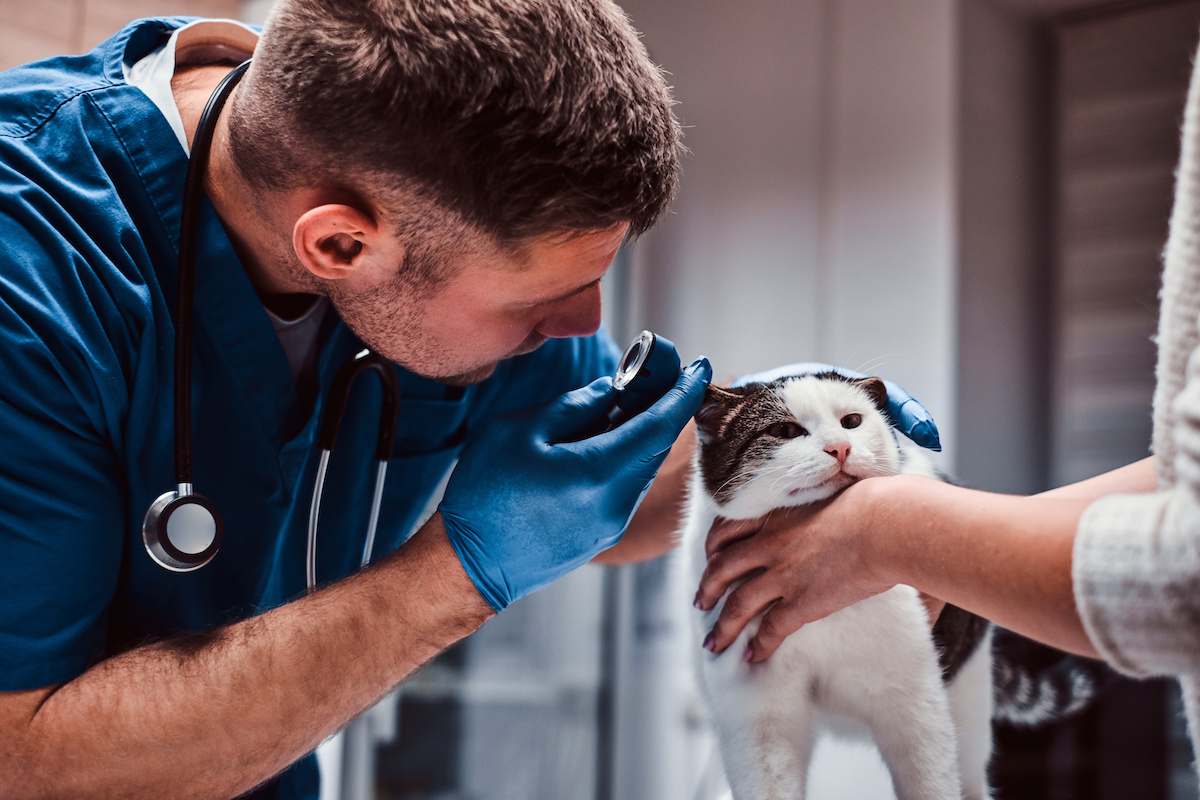How to Choose the Right Veterinarian Greensburg for Your Pet's Requirements
How to Choose the Right Veterinarian Greensburg for Your Pet's Requirements
Blog Article
Specialist Tips for Pet Nutrition From a Veterinarian
Comprehending the dietary demands of pets is critical for their general wellness and durability. Veterinarians recommend a well balanced diet plan that deals with individual factors such as task, breed, and age level. Yet, with the multitude of pet dog food alternatives offered, pet owners usually discover themselves navigating a landscape raging with false information and myths. As we explore important ideas from vet specialists, it comes to be noticeable that correct nourishment is not just regarding what is fed but involves a much deeper understanding of each animal's unique demands. What vital insights could change your strategy to family pet nutrition?
Comprehending Nutritional Needs
Understanding the dietary requirements of animals is basic to guaranteeing their general health and wellness. Similar to people, animals need a balanced diet that gives vital nutrients, including proteins, fats, vitamins, carbs, and minerals. These nutrients play important duties in various bodily functions, such as power manufacturing, immune response, and tissue fixing.
They are composed of amino acids, some of which are vital and need to be acquired from food. Carbohydrates serve as a main energy resource and can support gastrointestinal health when they consist of fiber.
Vitamins and minerals are necessary for metabolic processes and maintaining total health and wellness. Each family pet might have special needs based upon aspects such as age, breed, task level, and wellness condition. It is vital to seek advice from a vet to identify the details dietary needs tailored to your pet dog's private demands, ensuring they obtain ideal nutrition throughout their life phases. Proper understanding and attention to these nutritional parts can substantially contribute to a family pet's long life and high quality of life.

Selecting the Right Food
Choosing the proper food for pet dogs is an essential aspect of meeting their nutritional needs. It is vital to think about elements such as age, breed, health, and size standing when selecting an animal food. Kittycats and young puppies need formulations that sustain development and advancement, while grown-up pet dogs need balanced diets that keep their wellness. Elderly family pets might gain from foods designed to resolve age-related problems, such as joint health and wellness or weight management.
When examining pet food choices, seek products that meet the Association of American Feed Control Officials (AAFCO) requirements, which guarantee that the food supplies full and balanced nutrition. Ingredients must be high-quality, with actual meat as the main resource of protein. Avoid foods with excessive fillers, synthetic ingredients, or by-products, as these can interfere with the total nutritional worth.
Consulting with a vet can supply tailored suggestions based on your animal's specific needs. Additionally, transitioning in between foods ought to be done progressively to avoid stomach upset. By taking these actions, pet owners can guarantee that they are giving their fuzzy companions with the most effective possible nourishment for a happy and healthy and balanced life.
Usual Misconceptions Concerning Family Pet Food
Exposing misconceptions surrounding pet food is essential for ensuring optimal nutrition for our furry companions. One prevalent myth is that all grain-free diet regimens are superior for family pets.

In addition, numerous pet proprietors think that "costs" or "natural" labels assure better. These terms look at this web-site are usually unregulated and do not necessarily show premium dietary value. It is important to inspect active ingredient lists and nutritional accounts rather.
Unique Considerations for Various Types
When it concerns pet nourishment, special factors to consider have to be taken into consideration for different breeds, as each type can have special dietary needs and sensitivities. Huge types such as Great Danes and Saint Bernards are susceptible to musculoskeletal problems and may profit from diets formulated to sustain joint health and wellness, typically featuring active ingredients like glucosamine and omega fatty acids. Conversely, small types like Chihuahuas might need greater calorie thickness to meet their energy levels, demanding formulations that are abundant in nutrients however reduced wholesale.
Furthermore, specific breeds might be inclined to particular health problems, such as food allergies or level of sensitivities. Breeds like Labrador Retrievers may battle with weight problems, calling for careful portion control and a balanced diet to preserve a healthy weight. On the other hand, types such as Dachshunds may be more at risk to spine concerns, triggering a demand for diet plans that advertise spine health and wellness and weight administration.
Eventually, recognizing these breed-specific dietary demands is critical for pet dog owners. Consulting with a vet can aid in selecting the most suitable diet regimen tailored to a private family pet's health, age, and breed status, ensuring optimum nutrition and well-being.
Significance of Regular Veterinary Exams
Recognizing the special dietary requirements of various breeds is just one element of liable family pet possession; regular veterinary examinations play an essential duty in preserving overall health. These exams are vital for early detection of health and wellness issues, making sure that any type of potential troubles are attended to prior to they become major. Routine check outs allow veterinarians to check your family pet's weight, oral health and wellness, and vital indicators, which are crucial indicators of general health.
In addition, regular check-ups make it possible for veterinarians to provide customized nutritional guidance based on your pet's specific health and wellness status - Animal Hospital Greensburg. As family pets age, their dietary requirements may alter, and adjustments may be essential to avoid excessive weight or nutrient deficiencies. Precautionary treatment, consisting of vaccinations and parasite control, is additionally a basic part of these visits, securing your family pet from different diseases
In addition to physical examinations, these appointments provide an outstanding chance for pet dog proprietors to go over behavior modifications or issues regarding their animal's eating habits. By prioritizing routine vet check-ups, pet proprietors can make sure a longer, healthier life for their fuzzy friends, inevitably boosting their quality of life.
Final Thought
In verdict, making certain optimal pet nutrition requires a comprehensive understanding of private nutritional requirements, ideal food option, and awareness of common myths. Special factors to consider for various types should be accounted Full Article for, and routine veterinary check-ups play go right here an important duty in monitoring health and wellness and dietary changes. Abiding by AAFCO criteria and seeking advice from veterinarians before making dietary modifications will boost the wellness of family pets, ultimately adding to their longevity and lifestyle.
With the plethora of pet food choices offered, pet proprietors commonly locate themselves navigating a landscape swarming with misinformation and myths. Each animal may have distinct demands based on elements such as age, breed, activity degree, and health and wellness standing. It is necessary to consider factors such as age, dimension, type, and wellness condition when selecting a pet food. Senior pet dogs may benefit from foods made to address age-related problems, such as joint health or weight monitoring.
Recognizing the distinct dietary demands of various types is only one aspect of responsible pet possession; regular vet examinations play a crucial duty in maintaining total health and wellness.
Report this page